
Anthroposophy Studies on Campus
Anthroposophy is a path to understanding the human being and our relationship to the world. Studying in a diverse community at the Goetheanum is a unique experience that brings the possibility to expand one’s perspectives, enhance the ability to think creatively and gain new insights.
About the Course
The Anthroposophy Studies on Campus is for anyone looking for an understanding of Rudolf Steiner’s work and how anthroposophy relates to different fields. Theoretical lessons take place alongside artistic activities and field trips that support the learning process in an international environment.
Participants can choose to enrol for the entire program or one term. No previous academic background or experience is required to apply for this course, apart from a fair knowledge of the English language. Find more information on language, costs and scholarships here.
| 2025/26 Academic Year | Dates |
|---|---|
| Autumn Term | 6 October – 19 December 2025 |
| Winter Term | 12 January – 27 March 2026 |
| Spring Term | 13 April – 26 June 2026 |
| 2026/27 Academic Year | Dates |
|---|---|
| Autumn Term | 5 October – 18 December 2026 |
| Winter Term | 11 January – 26 March 2027 |
| Spring Term | 12 April – 25 June 2027 |
Studying Rudolf Steiner's Texts
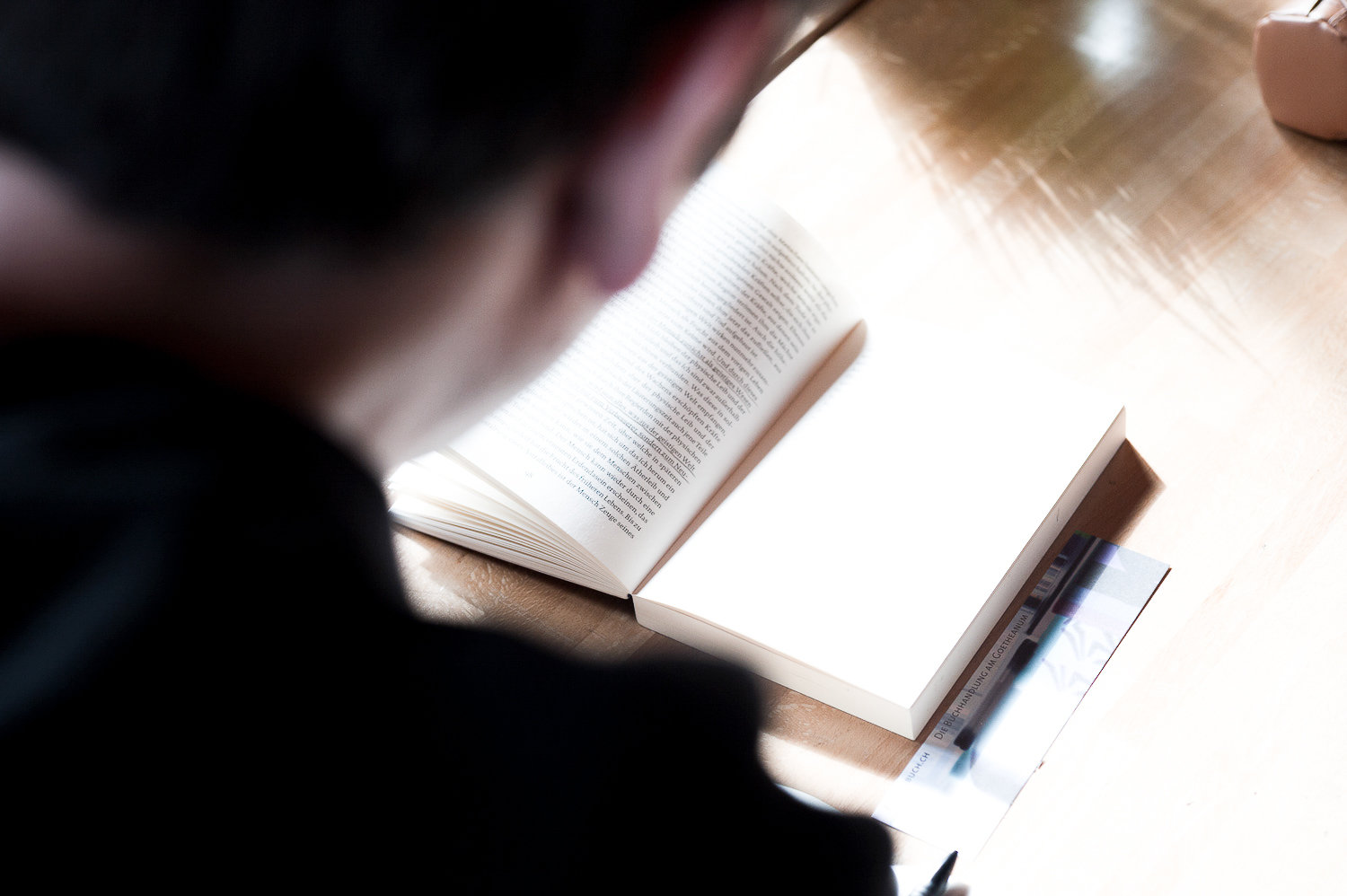
The program aims to introduce students to Rudolf Steiner's work. Each term is designed around a theme and focuses on the study of a particular book:
Autumn Term: 5.10.2026 – 18.12.2026
Anthropology: What does it mean to be human?
Book: Theosophy, Rudolf Steiner
Winter Term: 11.01.2027 - 26.03.2027
Freedom, Knowledge and Responsibility
Book: The Philosophy of Freedom, Rudolf Steiner
Spring Term: 12.04.2027– 25.06.2027
Praxis
Book: Leading Thoughts, Rudolf Steiner
Students, whether familiar with Rudolf Steiner's writings or new to anthroposophical content, will benefit equally from reading and discussing in an international group setting, as well as from close interaction with faculty members.
The book study sessions are offered in English and German*. The rest of the program is held in English. Participants are encouraged to read the texts and books in the language of their choice.
* The availability of the sessions in German is subject to a minimum number of participants.
Weekly Seminars
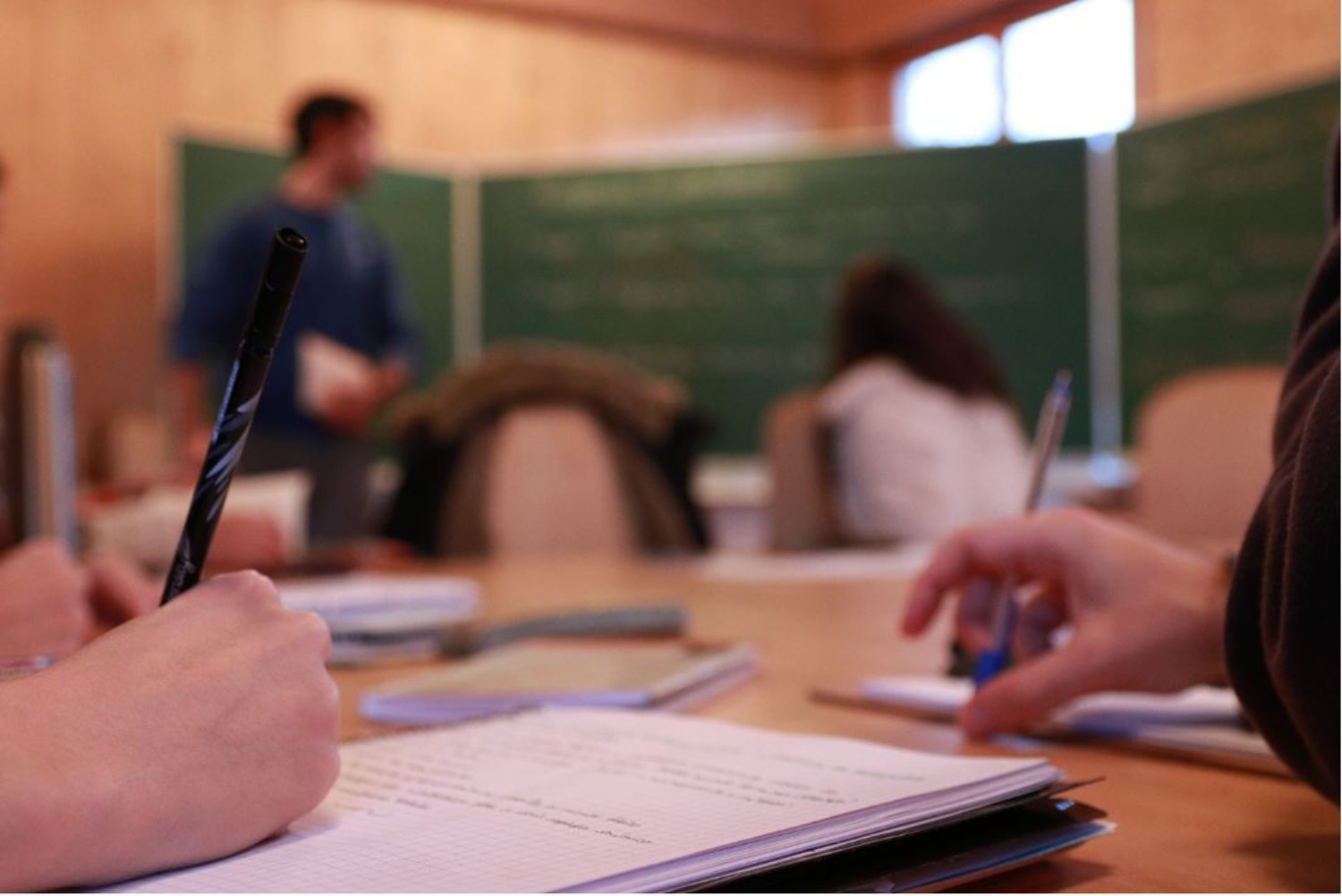
Following the Morning Lessons, students take part in weekly seminars with visiting lecturers and specialist practitioners. These seminar-style classes address various topics in different fields, such as education, medicine, art, agriculture, natural sciences, and economics. Guest participants from all over the world interested in joining the study group during one of the seminars can also register separately. Check the seminars in the program below.
Artistic Activities

In this interdisciplinary program, students can explore the connection between what they learn from Rudolf Steiner’s writings and artistic practice. The curriculum includes a range of art courses, encompassing various forms of expression such as painting, drawing, sculpting, and Eurythmy.
Also, visiting the Goetheanum is in itself an artistic experience. In addition to the art classes that are part of the curriculum, enrolled students also have access to the Goetheanum library and the many cultural events that take place on the Goetheanum stage, such as concerts, theatre plays and Eurythmy performances.
Research Project

Research work is an essential part of the Anthroposophy Studies, offering students a valuable opportunity to connect the program's content with their research interests.
For some students, the very impulse to study Anthroposophy gradually evolves into a thought-provoking research theme. Others enter the program with a predetermined topic of interest, which they aim to explore in greater depth. Regardless of their approach, students work freely on their chosen projects while receiving support and guidance in tutorial sessions.
As a closure of their learning experience, students must submit a paper and deliver a presentation to share their research findings, insights, and reflections with their peers and instructors.
Field Trips
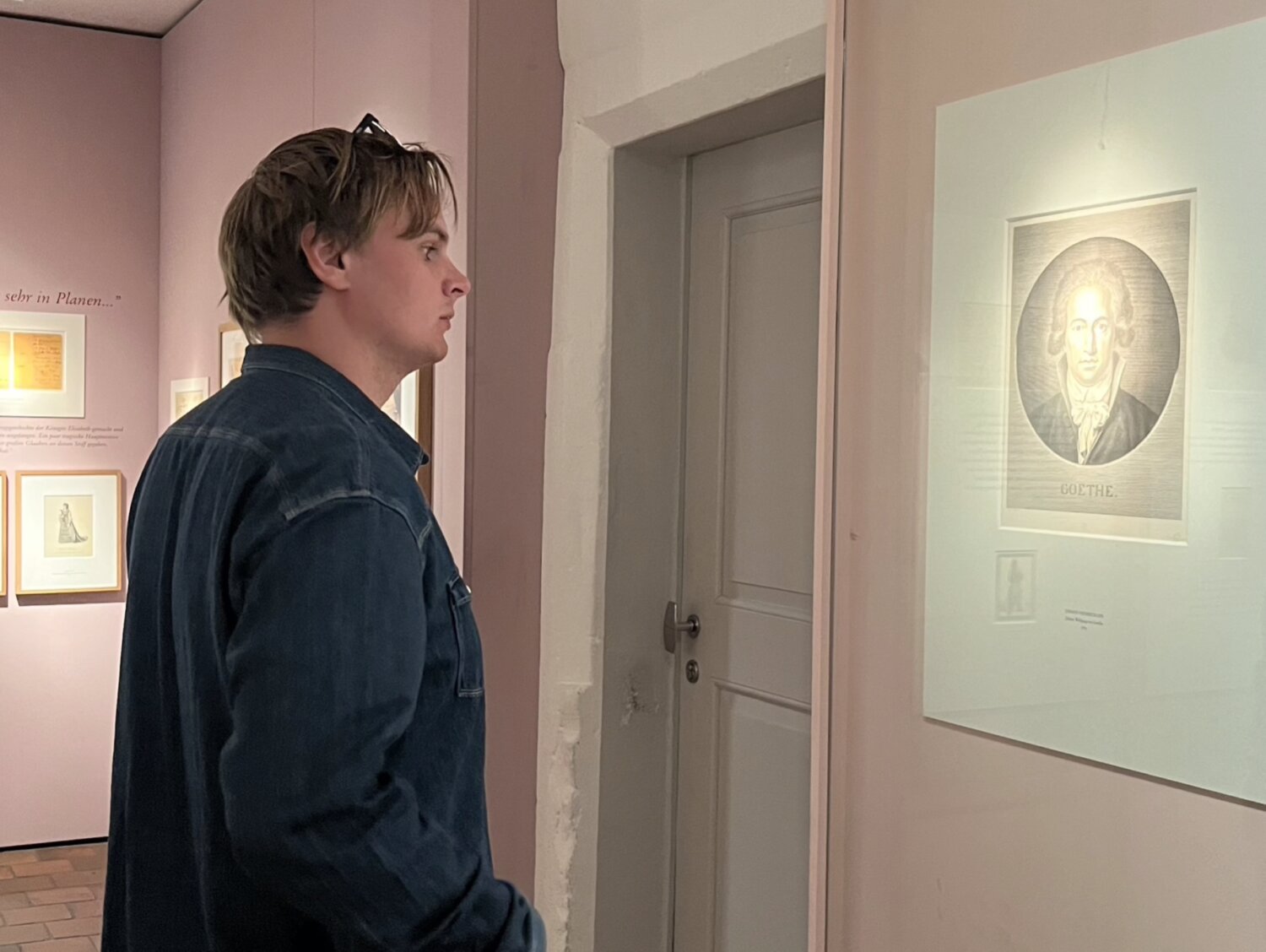
Field trips enrich the thought processes that take place in the classroom. As part of our study program, we organize class trips to Chartres and Weimar, offering students unique opportunities to broaden their cultural horizons and gain fresh insights into specific topics from new perspectives.
The costs associated with these trips are separate from the program's tuition fees. Nonetheless, we are committed to assisting students in every possible way to raise funds and secure the necessary resources to cover their travel expenses.
Student Life on Campus
Watch the video to learn more about
student life on campus
The Anthroposophy Studies on Campus is for anyone who wishes to be part of a plural community of people from different countries, ages, and backgrounds. Living right on campus in a diverse environment is one of the highlights of this course and what makes it a truly unique experience. The contacts made here create a worldwide network of people involved in many areas of anthroposophy.
Limited accommodations are available at the Student Residence at the Goetheanum Campus, right next to Haus Schuurman, where most classes take place.
General Information
Language
English is the primary language of communication. Classes are held in English, but participants are encouraged to read the texts and books in their language of choice.
Tuition Fee
Tuition fees are CHF 1400 per term; CHF 4200 for the whole academic year (three terms). The costs for class trips and travel are not included in the tuition fee.
To formally secure a place in the Goetheanum Studium on-campus programs, students must pay a non-refundable deposit of CHF 50. This requirement will be indicated in your admission letter, and the amount will be deducted from your tuition fees at registration.
Living Cost
In addition to the tuition fees, students need to consider living costs. Fairly basic student life in Switzerland is possible at CHF 1200 per month.
Scholarships
From a scholarship fund based on donations, we are able to award limited tuition fee scholarships. For this purpose, a separate form must be submitted with details of the student's own financial situation and the amount needed for the desired scholarship (30%, 50%, or more).
Certificate
Upon completing the Anthroposophy Studies on Campus program, participants receive a certificate recognized as a non-university academic achievement on the student's initiative. Students cannot obtain a Bologna-compliant degree at the Goetheanum.
Application
Please submit the application form below. We will acknowledge your application by email and schedule a meeting to answer any questions you might have about the program and get to know you better.
| 2025/26 Academic Year | Dates |
|---|---|
| Autumn Term | 6 October – 19 December 2025 |
| Winter Term | 12 January – 27 March 2026 |
| Spring Term | 13 April – 26 June 2026 |
| 2026/27 Academic Year | Dates |
|---|---|
| Autumn Term | 5 October – 18 December 2026 |
| Winter Term | 11 January – 26 March 2027 |
| Spring Term | 12 April – 25 June 2027 |
Faculty
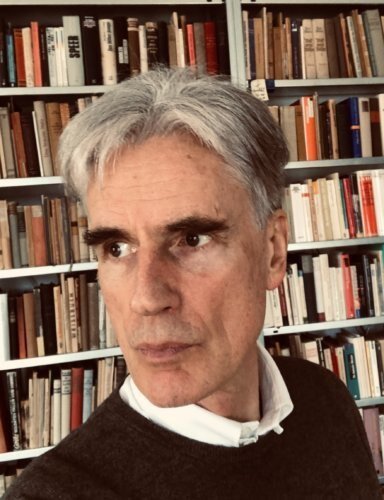
Bodo von Plato
Born in Germany in 1958. Studied modern history, philosophy and Waldorf education. Teacher at a Steiner school in Paris. 1991-2003: Hardenberg Institute in Heidelberg. From 2001 to 2018: member of the Executive Board of the General Anthroposophical Society and the Executive Board of the School of Spiritual Science. Since 2019: Stiftung Kulturimpuls in Berlin, research and projects on contemporary symptoms.
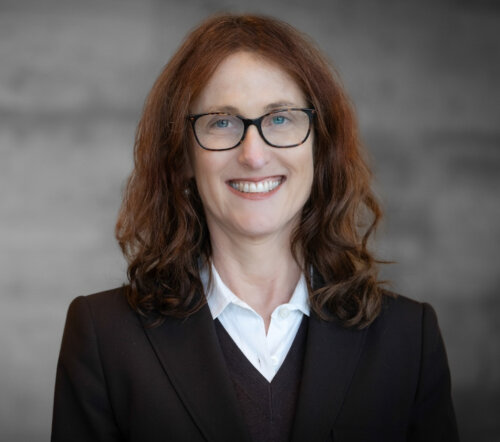
Constanza Kaliks
Born in 1967 in Chile, Constanza Kaliks grew up and lived mostly in Brazil. Constanza completed her studies of Mathematics in São Paulo, and went on to be mathematics teacher at the Escola Rudolf Steiner in São Paulo for 19 years. There she was also a teacher in the Waldorf Teacher training. Constanza has a Ph.D. in Education with a thesis on Nicolaus of Cuse. She is part of the board of the Goetheanum since 2015. Co-leader of the Pedagogical Section and the General Anthroposophical Section at the Goetheanum.
patricia.sethaler@goetheanum.ch dorothee.prange@goetheanum.ch andrea.keim@goetheanum.ch

Jan Göschel
Head of the Section for Inclusive Social Development and Member of the Leadership Team. Jan Göschel is a long-standing member of the Camphill community at Beaver Run near Philadelphia, where he lives when he is not in Dornach or traveling. In addition to his Section responsibilities, he is president of the Camphill Academy, an association of supportive education and social therapy training centers in the USA and Canada. Before shifting his work primarily to training, he was a high school teacher at The Camphill School. Born and raised in Germany, he spent one year as a volunteer at Camphill Village Minnesota, before studying psychology and Waldorf education in Edinburgh. He later qualified as a special education teacher in the US and completed a Ph.D. at the University of Cologne, with a dissertation on child study in anthroposophic curative education.
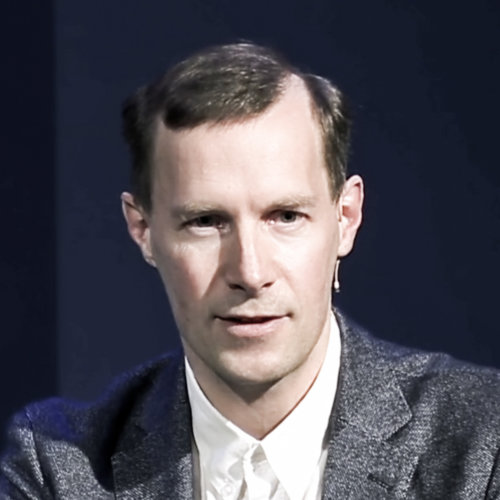
Matthias Rang
Born 1973 in Germany. Studied physics, 2007 research stay at the University of Washington in Seattle, USA. Since then he has been working as a Research Fellow in the Natural Science Section at the Goetheanum in Dornach, Switzerland. 2015 Doctorate at the Bergische Universität Wuppertal, Germany, and since 2020 responsible for the leadership of the Natural Science Section together with Johannes Wirz.

Nathaniel Williams
Nathaniel Williams founded the Free Columbia training site with Laura Summer, where he directed the M.C. Richards program. He studied art and puppetry in Basel, Switzerland, and graduated in fine arts from the Neue Kunstschule in 2002. He received his Ph.D. in Political Science at the University of Albany and works as a performer, teacher and artist. Currently he is the head of the Youth Section at the Goetheanum.

Philipp Reubke
Born in Stuttgart, studied philosophy and German language and literature, has worked as a Waldorf teacher in France since 1989, first as a German teacher at the Waldorf School in Colmar, since 1996 as a Waldorf kindergarten teacher, from 2011 to 2020 member of the coordination group of IASWECE (International Association for Steiner/Waldorf Early Childhood Education), member of the International Forum, since October 2020 Head of the Pedagogical Section.
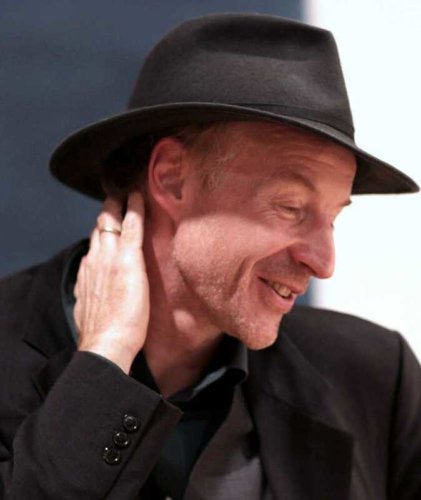
Peter Selg
Born in Stuttgart, Germany in 1963. 1986-1993 Study of medicine at the University of Witten/Herdecke, in Berlin and Zurich. Doctoral thesis: "Attempt to systematize Rudolf Steiner's human physiological ideas. An analysis of the entire lectures and written work (Witten/Herdecke 1995). From 1993 until 2000 Further training as a specialist in child and adolescent psychiatry and psychotherapy. Senior physician in the psychiatric department for adolescents and young adults at the Herdecke Community Hospital. From 2000-2002 Research associate at the Institute for Applied Epistemology and Medical Methodology (Freiburg).2002-2006 Head physician at the Ita Wegman Clinic Arlesheim (adolescent psychiatry and psychotherapy); since 2006 establishment and management of the Ita Wegman Institute for Basic Anthroposophical Research. Since 2007 professorship for medical anthropology and ethics at the Alanus University of Arts and Social Sciences; teaching in the Studium fundamentale and in the accompanying studies in anthroposophic medicine at the University/Witten-Herdecke. Since 2020, member of the Leadership of the General Anthroposophical Section of the School of Spiritual Science at the Goetheanum.

Barbara Schnetzler
Freelance sculptor based in Basel and Mulhouse. She trained as a sculptor at the Müllheim Sculpture School (TG). Her work is represented by various galleries and is featured in several art collections and public spaces. She was a member of the leadership team from 2020 to 2023 and continues to be associated with the Visual Arts Section at the Goetheanum as a lecturer and curator.
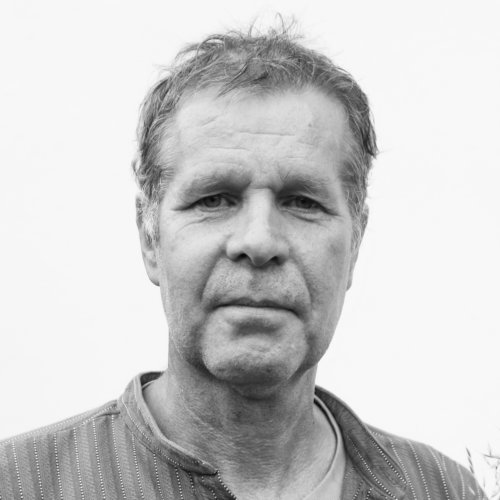
Benno Otter
Born in the Netherlands in 1959. Trained as a biodynamic gardener, followed by practical years in Ireland at a home for adults individuals with different abilities. There he was responsible for the cultivation of vegetables. Since 1982 he has been working as a gardener in the nursery at the Goetheanum. In 1985 he took over the management of the nursery.

Esther Gerster
Born 1957 in Switzerland. Studied art at the Goetheanistische Studienstätte in Vienna, Austria, worked on the ceiling painting of the Great Hall in the Goetheanum in Dornach, Switzerland. She was Executive Council and General Secretary of the Anthroposophical Society in Switzerland. Today she teaches painting at the Goetheanum Anthroposophical Studies, gives painting courses, exhibits her art and gives guided tours and visits to the Goetheanum.

Ioana Fărcășanu
Born in Bucharest, Romania, Ioana Fărcășanu graduated from the U.N.A.T.C National University of Theatre and Film "Ion Luca Caragiale" - Screenwriting, Bucharest 2004-2008. Following her graduation, she trained and performed with the Logos Theatre, experimental studio for art and speech, from 2008 to 2014. This led her to further training in Eurythmy at the Eurythmeum CH from 2014 to 2017. She has collaborated on various notable projects as a Eurythmist, including "Faust" and "Parsifal" at the Goetheanum. Since 2023, she participates in the Mystery Dramas in the role of Maria. She has been member of the Goetheanum Eurythmy Ensemble since September 2023.
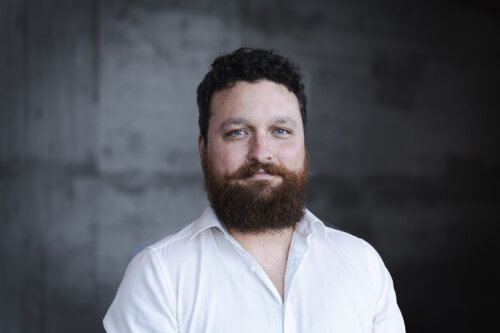
Nicolas Criblez
Nicolas was born in Lima, and grew up in Peru and Switzerland. He completed his undergraduate studies in Philosophy (BA) and is currently specializing in History of Modern Philosophy and Philosophy of Science (MA). From 2011 to 2014 he studied in the Anthroposophical Studies in English at the Goetheanum with Dr. Virginia Sease, where he also taught courses on Steiner’s Philosophy of Freedom, and history of philosophy from 2016 to 2018. He speaks Spanish, English, French and German. In 2021, Nicolas joined the General Anthroposophical Section’s team.
Contact

Andrea de la Cruz
Born in 1989 in Madrid, Spain. Andrea is a coworker at the General Anthroposophical Section and the coordinator of the Studies and Further Education Department at the Goetheanum. She studied Education (M.A.), Waldorf Pedagogy, Theatre Practice (BA) and Community Theatre (BA). Since 2011 she has been active as project manager, researcher and facilitator in adult education, youth work and the cultural industries.